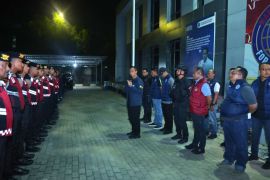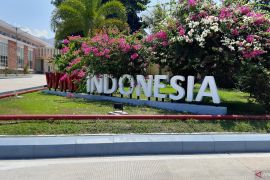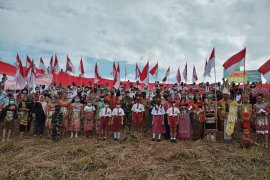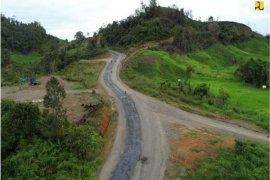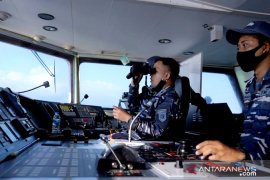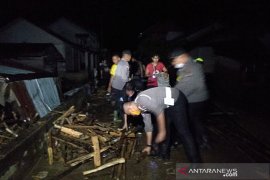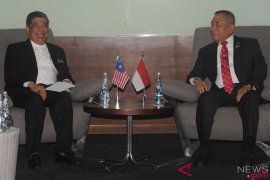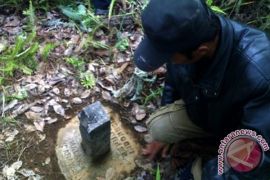Poor infrastructure has impeded economic activities in border areas, sometimes, even causing local inhabitants to feel excluded from national development processes.
The main objective of the development initiatives is to meet the special needs of the people living in remote, inaccessible areas situated along the border of Indonesia and Timor Leste on Timor Island in East Nusa Tenggara.
Therefore the government wants to encourage investors to engage in wide-ranging infrastructure development projects, including roads, ports and bridges in a bid to boost local economic activities.
Infrastructure development in Belu district, which shares a border with Timor Leste, is being sped up in an effort to meet the special needs of the local community and to attract investors.
"We are accelerating infrastructure development in the district in order to attract as many investors as possible," Belu district head, Joachim Lopez said in the district town of Atambua early this week.
According to him, the local government has received funds from the state and regional budgets for infrastructure development in Belu district.
"With the funds received from the state and regional budgets through the Ministry of Public Works, we are improving transportation infrastructure, such as roads and bridges, up to the border with Timor Leste,� Lopez stated.
He added that the local government was also focusing on developing agriculture-related infrastructure, such as dams and tertiary irrigation canals, in addition to providing investors with adequate farmlands.
"The local government recently received an expression of interest from an investor who wanted to invest in corn cultivation," Lopez revealed.
In response, he said that the Belu district government provided the investor with a 500-hectare farmland suitable for growing corn.
Futher, Lopez noted that besides the infrastructure development in Belu, a new border post would be set up in the Mota`ain area.
"The existing border post at Mota`ain is no longer good enough because it did not match up with the one in Timor Leste. Therefore, it is time to dismantle it and build a new post," Lopez explained.
Meanwhile, Belu Regional Development Planning Board spokesman, Valens Pareira has said the central government would allocate Rp40 billion for the development of an integrated border post between Indonesia and Timor Leste in the Mota`ain area.
"According to the Public Works Ministry Directorate General of Cipta Karya, the central government will allocate funds for the development of an integrated border post at Mota`ain in Belu district, East Nusa Tenggara (NTT) province," Pareira said in Atambua on Monday.
With the allocation of funds from the central government, Pareira expressed hope that the construction of an integrated border post between the two countries would be completed in 2013.
He stated that the Belu district government had prepared a master plan and a 7.2-hectare plot of land for the development of the integrated border post.
"The master plan was approved by the central government through the Cipta Karya," Pareira said, adding that Belu district actually needs adequate number of border-crossing points, which will benefit the people of both countries.
In a bid to ensure safety and security of the border guards, general manager of the East Nusa Tenggara branch of state electricity company PT PLN, Richard Safkau said that the company has installed a significant amount of solar cells at 31 border posts between Indonesia and Timor Leste.
"We have installed the solar cells at 31 posts in four districts along the border between the two countries to ensure safety and security for the border guards while conducting their activities," Safkau said on Tuesday.
He noted that the installation of solar cells at every border post was part of the government`s initiative through the PLN to support the tasks of the TNI soldiers who guard the border against threats to territorial integrity.
Safkau explained that the solar cells were installed at the posts of Ninong, Baen, Inbate, Nilulak, Manunasi and Olbinose in the Timor-Tengah-Utara district.
The PLN installed the cells at the border posts in Nakannoe, Ailala, Nunuraki, Dilumil, and Koholulik in the Belu district; and at Oesao, Oepoli and Amfoang in Kupang district.
Safkau added that the state electricity company had also provided people in border areas with super energy-efficient (Sehen) lamps to overcome electricity problems.
According to him, the PLN has installed the Sehen lamps in Rote Ndao district which shares a border with Australia, Alor district which shares a border with the Timor Sea and the districts of Kupang, Timor-Tengah-Selatan, Timor-Tengah-Utara and Belu that share a border with Timor Leste.
Particularly in the Belu district, Joachim Lopez has said that the local government was available to those seeking to invest in solar electrical equipment.
"In principle we are open to solar cell investors who would like to meet the local people`s need for electricity," Lopez said, adding that electricity was a major problem in the district bordering Timor Leste.
He noted that besides seeking investors, the local government also provides free electric installations through the state electricity company, PLN, for low-income households.
According to Lopez, the local government will assist investors in solar cell technology, in accordance with existing regulations.
Meanwhile, Belu district PLN spokesman, Fachrudin Muhamad said the electricity company has installed super energy-efficient lamps to overcome electricity problems in the district.
"We will continue to provide the local community with affordable electricity so that they can enjoy it, like people in other districts," Fachrudin said.
He pointed out that PLN has installed 2,983 extra super energy-efficient lamps in 24 sub-districts bordering Timor Leste. (*)
Reporter: Otniel Tamindael
Editor: Otniel Tamindael
Copyright © ANTARA 2012
